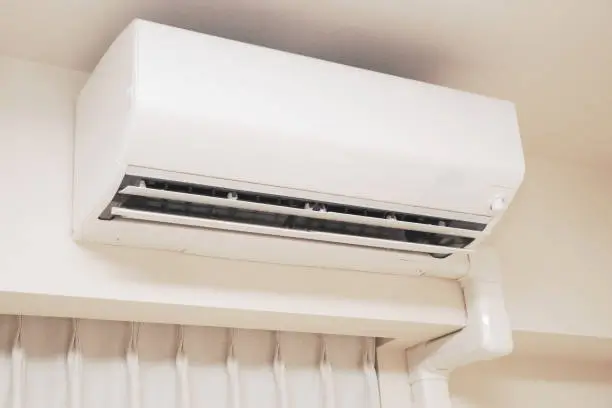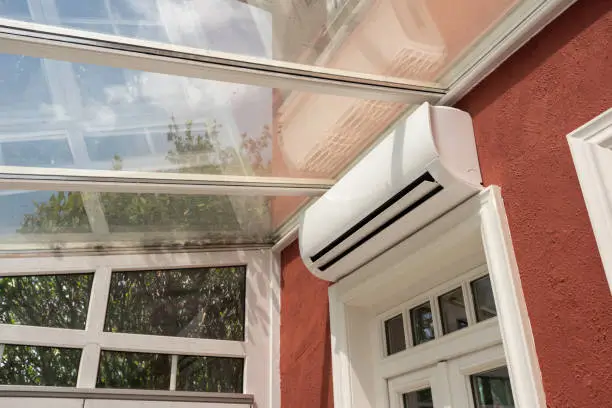HVAC stands for Heating, Ventilation and Air Conditioning. A HVAC system’s purpose is to exchange air within a space, filter it, and distribute it around your home.
Those looking to replace their system might take this as an opportunity to upgrade, too. That could be anything from integrating both heating and cooling within a single system, or enjoying advanced technology that saves money and energy.
Replacing a HVAC system isn’t as simple as you might think and so you need to find the right heating and cooling team in Melbourne to devise the most suitable solution for your home, within the constraints of your budget.
Can I replace my own HVAC system?
Considering how complicated a HVAC system is, you will need a licensed professional to install or replace a HVAC system in your home.
Even if you’re only replacing one aspect of a HVAC system, such as a filter, or a pipe, it is still the safest option to have a licensed Air Alpha technician do the job for you.
There are a lot of facets of installing a HVAC system, including electrical, plumbing and ductwork. That’s why a heating and cooling expert should be the only person touching your system.
How much does it cost to replace your HVAC system?
The first thing you probably think about when getting something replaced in your home is the cost.
A HVAC system’s cost can vary greatly depending on many factors such as:
- The type of system you have
- How many rooms the system uses
- How long the job takes
- The size of your home
- Supplies and equipment
- What power it runs on
- Whether you’re getting a heating system or a cooling system or both
- Size of the unit
- The SEER (more on this one below)
We break down a few of these important factors.
The type of system you have
A ducted reverse cycle air conditioner or a VRF air conditioning system installation are just two types of HVAC systems that your home could use.
When considering the replacement of a system, you might want to consider upgrading to a better suited system that suits the size and layout of your home, as well as how you use various rooms within.
How many rooms the system uses
When replacing your HVAC system, you might want to think about adding more rooms to the system if your family is getting bigger or if you want more coverage around your home.
The amount of rooms the system uses changes the cost because it changes the amount of supplies needed and the labour hours.
What power it runs on
Whether your HVAC uses electricity, gas or oil, can effect what equipment is needed to replace your system.
Solar power can also add time and supplies to connect the HVAC system with the converter system your solar energy runs to.

The size of the unit
The size of the heater or air conditioning unit can alter its productivity, compressor performance, flow rate, and its pressure rate.
The SEER
SEER stands for Seasonal Energy Efficiency Ratio. It is used to calculate how energy efficient an air conditioning is. As such, different units and systems will have a different SEER.
The higher the number, the less it costs to run. A SEER value of 16 will generally be the most cost effective. But if you live in an area with high temperature all year around, it may be beneficial to get an air conditioner with a higher SEER value.
When should you replace my HVAC system?
In general, most HVAC systems should last anywhere between 15-25 years.
However this is best supported by regular split, ducted, or reverse cycle air conditioning service.
For example, ducts could lose their insulation so slowly over time that you might not realise that the system is getting weaker. There could also be other issues that you don’t see like ducts splitting a part or a fan motor stops working.
Ongoing maintenance helps to identify and rectify smaller issues like these, before they escalate into larger ones.
However, depending on the age and condition of your system, it might be more efficient and worthwhile to instead get a whole new HVAC system installed, rather than just getting the necessary parts fixed.
Just like when your car has issues or your phone has issues, instead of paying to get them fixed, it’s better to buy a brand new one. It will save you effort and money in the long run to at least look into getting a whole new system instead of paying for parts.
Because if you pay X amount to get it fixed after five years, you will be paying to get it fully replaced again in five years anyway.
Does replacing HVAC increase home value?
Whether you’re thinking of selling your house soon, or you plan on staying put, it is worth installing a new HVAC system.
Since systems are expanding and getting better each year, replacing a HVAC system can increase the value of your home, should you decide to sell in 5 or even 10 years’ time.
How do zoned HVAC systems work?
Installing a zoned HVAC system means you can have different temperatures in separate rooms in your home at the same time through the same system.
This works by having movable plates in the ductwork that control the heating and cooling.
Zoned HVAC systems are just one example of the advancements made in HVAC systems in a matter of years. Find out more about how zoned HVAC systems work here.
Interested in upgrading and replacing your HVAC system?
For quotes, more information, or to replace and repair a HVAC system, give Alpha Air a call on 1300 854 525 or request a free quote here.
We cover the world’s most reputable and popular brands, so if you’re interested in a Mitsubishi ducted air conditioning system or a Daikin ducted air conditioning system, then we’d love to help!








